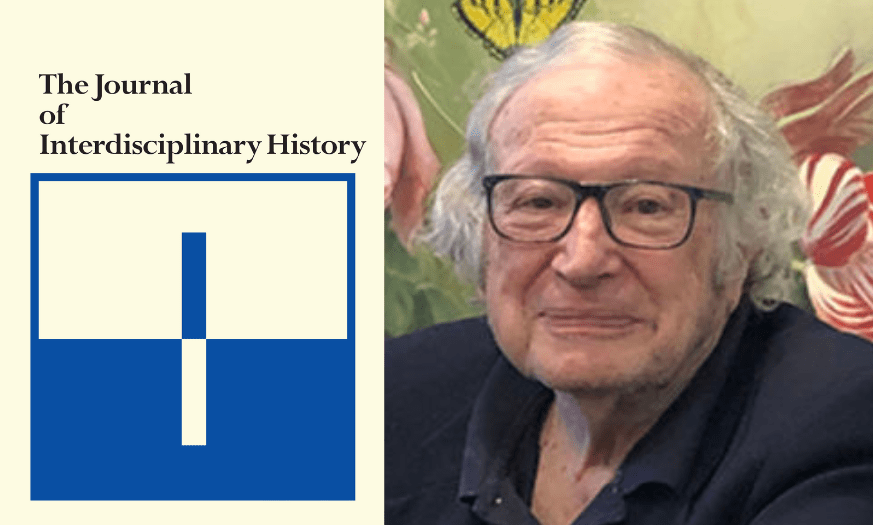Academic Review of An English Tradition? by Dr Peter Stansky

Jonathan Duke-Evans
Author of An English Tradition?
The History and Significance of Fair Play
Delighted to read Dr. Peter Stansky’s review of “An English Tradition which was published in the Journal of Interdisciplinary History.
Dr Stansky is an Emeritus Professor at Stanford’s Department of History and a recent recipient of The Peter Davison Award.
Review of "An English Tradition?" by Dr Peter Stansky
This is an extraordinary book with a wide-ranging exploration of the concept of fair play in Britain going back to the eighth century and Beowulf. It also perceptively considers the role of ancient Greece and Rome in forming the idea of fair play. There is a rich discussion of the idea in works by authors such as William Shakespeare, Edmund Spenser, Philip Sidney, Walter Scott, and others.
The very title of the book, however, raises a problem. Although there are perceptive discussions of fair play in Scotland, Wales, and Ireland, and extensive consideration of the use of the term in England, most of the text considers Britain as a whole. Perhaps the book would have been more accurately entitled A British Tradition? The answer is eventually yes, as the idea has been much more emphasised in Britain than elsewhere in the world. This is made plain in brief discussions of the concept in France, Germany, Spain, and Japan, with some references to other nations.
One has the feeling that the author has tracked down, although it cannot quite be true, every reference to fair play in British texts. And he is richly aware of the powerful ambiguities of the concept as it played out in Britain. Fair play would claim to be an idea that is uniformly applied. There is an effective discussion of its role in English law in connection to Magna Carta. A jury of one’s peers, the assumption of innocence, and various other stipulations are designed to assure a fair trial. Nonetheless, it is somewhat hard to square these assurances of fairness with the historical brutality of British law enforcement. Were individuals of all classes treated the same? It was very likely that someone from the working class accused of a minor theft might be hanged.
The British have often been accused of hypocrisy in their claim of fair play, a topic Duke-Evans does not discuss. He argues powerfully and effectively that the British assert their commitment to fair play with the implication that it is more true in Britain than elsewhere. But one cannot help but consider whether this assertion might be something of a cover up for just the opposite, obscuring the reality that individuals are treated quite differently depending on their social status. For example, the right to be tried by one’s peers means that if a member of the House of Lords is accused of a crime, the person is to be tried by the House of Lords itself!
The idea of fair play is most firmly associated in more modern times with sport, most notably with cricket, but also in tennis, boxing and football. Cricket has provided the most common expression for the concept; “It’s not cricket” is a universal statement signifying a violation of fair play. And yet, until recently, cricket has been the most class conscious of British sports, with a stark division that could potentially under cut fair play. Duke-Evans discusses these paradoxes but does not consider their possible ironies and contradictions. Might it be a violation of fair play that, in the world of cricket, there was a clear distinction between the gentlemen, who were unpaid “amateurs,” and the paid professionals? Although the author suggests that class lines were more flexible in Britain than elsewhere, and the hierarchies could be scaled by the talented, it was not a level playing field (a term now frequently used as an equivalent of fair play).
Fair play also played a role in the expansion of the franchise in nineteenth-century Britain and the associated agitation for voting and other rights for women. Its role in relation to the empire and slavery, a topic of great current interest, is more ambiguous and complex. Fair play did not prevent the dominant view that slaves and imperial subjects were inferior individuals, but it might have facilitated somewhat more humane treatment. The idea of fair play might even have improved the lot of imperial subjects, but to a far lesser extent. What this rich study demonstrates is that fair play, despite its role in British history and society, is a concept more nuanced and complex than the simple phrase might suggest. It is more closely associated with Britain than with any other country; this study traces how that came to be well presented in this book.
Dr Peter Stansky, Stanford University
Department of History
Journal of Interdisciplinary History, Volume 54, Number 2, Autumn 2023, pp. 274-275 (Review)
Published by The MIT Press.

